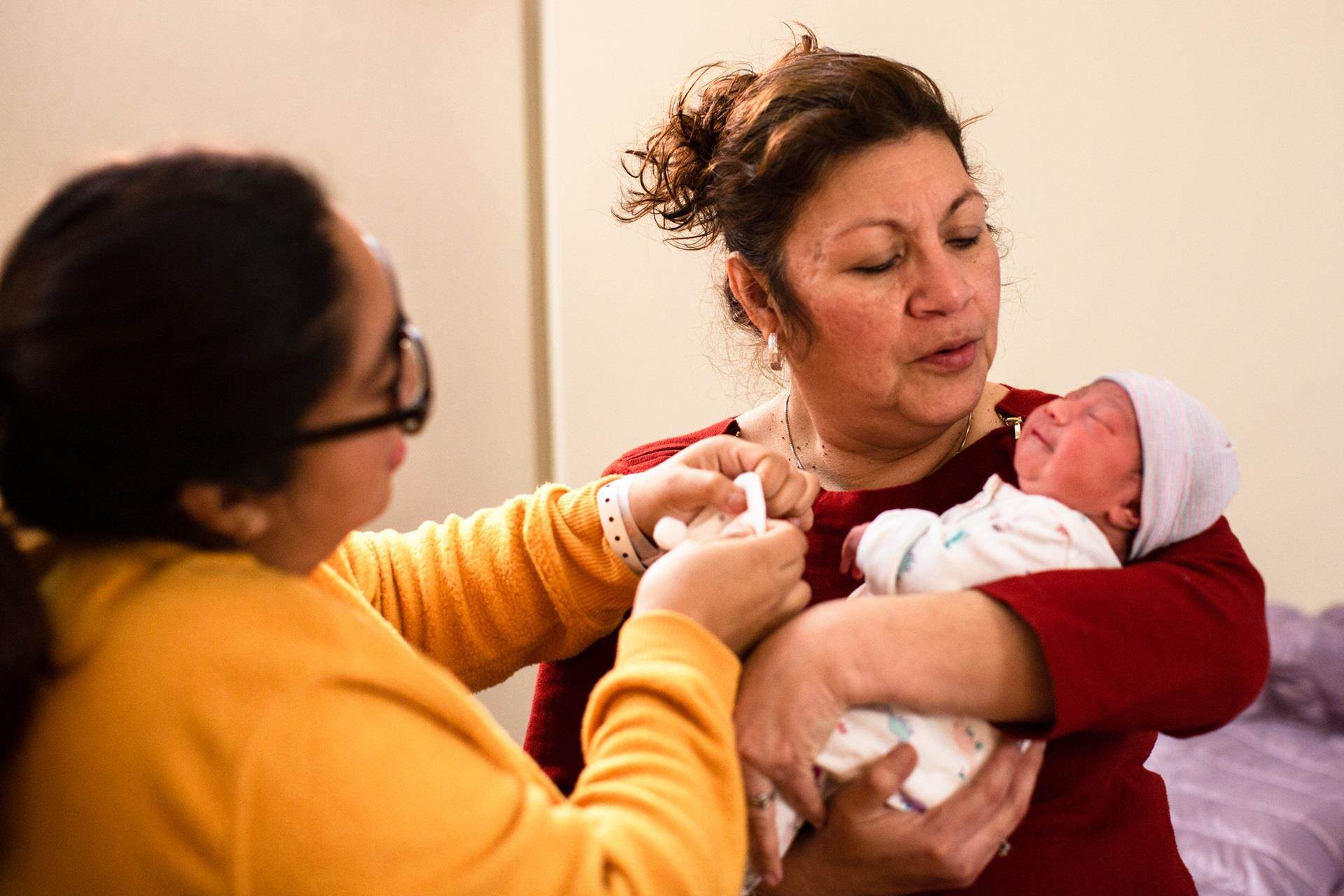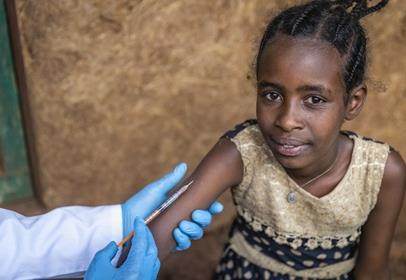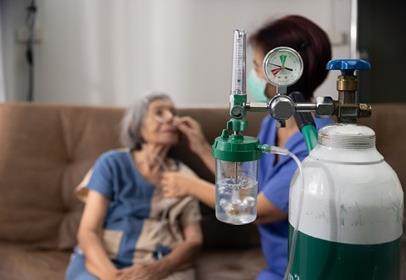
Project HOPE
Improving maternal health services for Venezuelan migrants in Colombia
Improve access to healthcare
South and Central America
2022-2023
UN Sustainable Development Goals


The issue
Political uncertainty in Venezuela is contributing to the Western Hemisphere’s worst humanitarian disaster in years. Venezuelans are running out of food and have no means to buy more. Hospitals often lack medicines and basic supplies and we are seeing increasingly alarming reports of malnutrition among the children of Venezuela.
While the ongoing Venezuela crisis has affected the entire region, Colombia has received the largest number of Venezuelan refugees and migrants. At least 1.8 million Venezuelans have sought refuge in Colombia over the past several years, many of whom need urgent health services. The influx has placed immense strain on the country’s health system, flooding hospitals and clinics with hundreds of thousands of new patients in need of treatment and care.
The Columbian-Venezuelan border - a 1,380 mile long stretch of land - was closed to legal vehicular traffic in August 2015, in the midst of worsening diplomatic relations between the two countries. Since Columbia’s border with Venezuela officially reopened in October 2021, the number of migrants crossing into Colombia has steadily increased - it is estimated that around 19,000 people make this journey every day.
The majority of people making the crossing are ‘pendular migrants’ – people moving temporarily for a specific purpose. Health care has been one of the primary reasons for Venezuelans to make the journey – with many of those being pregnant women and adolescents.
Despite the official border now being re-open, many of these women arrive via ‘trochas’ - unofficial and often dangerous crossing points - due to their lack of documentation.
No matter what their route of entry, it is common for these women to arrive having had - at best - limited prenatal care. Sadly, many have often also experienced trauma such as gender-based violence (GBV), transactional sex, and socioeconomic problems that generate anxiety, depression, or consumption of psychoactive substances.
There are significant, ongoing health needs for pregnant Venezuelan migrant women crossing into Norte de Santander for health services, particularly those that cross via “trochas”. Additionally, the lack of prenatal care and compounding risk factors results in an increased rate of emergency obstetric cases such as caesarean sections and others requiring higher-level care and attention.
In 2017, it was reported that every day roughly 810 women around the world die from preventable causes associated to pregnancy or childbirth. The maternal mortality ratio is 14 times greater in developing regions than developed places.
Project HOPE
For more than 60 years, Project HOPE has transformed the health and well-being of people and communities around the world. They work on the front lines of the world’s health challenges, partnering hand-in-hand with communities, health care workers and public health systems to ensure sustainable change.
Project HOPE places power in the hands of local health care workers to save lives around the world. Whether training midwives in Sierra Leone, outfitting hospitals in Indonesia, or resupplying clinics devastated by disaster, their commitment is to empower health care workers with the support they need to heal people who need it most.
They believe in long-term solutions that transform lives and communities. Ending preventable deaths of mothers and newborns. Putting an end to AIDS and Tuberculosis. Strengthening health care systems to withstand disaster. Advancing health policy that can change lives.
In Colombia, Project HOPE has been helping to improve and increase access to health services for Venezuelan migrants and host community members in Colombia since 2019, with a particular focus on pregnant women and women of reproductive age.
Through its ongoing maternal and child health programming, Project HOPE and its community-based partners have reached more than 4,400 pregnant women and women of reproductive age with key messaging on prenatal care, availability of services, gender-based violence.
Find out more about Project HOPE’s work on their website
The project
Croda Foundation has awarded a grant of £200,000 to Project Hope for a project to improve maternal health services for Venezuelan migrants in Colombia.
The goal of the project is to continue addressing immediate maternal and mental health needs of underserved migrant women in, and transiting through, Villa del Rosario. The project also aims to simultaneously increase the capacity of health care providers (in Columbia) to provide high quality maternal health care.
Croda Foundation’s support will provide ‘surge’ support medical staff in Erasmo Meoz University Hospital in Cúcuta to attend to emergency obstetric cases and consultations. The grant will also fund medical staff in Jorge Cristo Sahium Hospital and La Parada Primary Health Outpost - scaling-up maternal health services in Villa del Rosario for Venezuelan migrants. Equipment, medicines and consumables are also being funded, to ensure the provision of quality maternal health services.
The second aim of the project is to increase awareness of prenatal self-care and to strengthen health care referral pathways at the community level.
This will be achieved by identifying and recruiting pregnant Venezuelan women and adolescents crossing the border in need of health care and providing referrals to new community-based workshops.
Complementary psychosocial care will also be offered to vulnerable pregnant women who need it, with training offered through the programme to physicians and nurses to ensure any victims of gender-based violence receive specially tailored, safe and dignified treatment.
Currently, Project HOPE, through its community-based partner, provides psychosocial support to women coming through their workshops. However, due to the prevalence of trauma noted among beneficiaries, Project HOPE and its partners are proposing to scale up mental health and psychosocial support activities in this project extension to better meet this need in addition to the continuation of ongoing project activities.
Additionally, Project HOPE and its local partner (CMDyM) will ensure Venezuelan women receive information and guidance on registering under the Temporary Statue of Protection in Colombia – a regime which can protect their rights, including health care access and coverage, in Colombia for up to ten years.
The lives of the women who are reached through the project will be sustainably improved by reducing risks during pregnancy through access to prenatal care, education and equipped birthing facilities resulting in healthier pregnancies and healthier infants.
Impact
At least 6,000 children and family members will be indirect beneficiaries
Community outreach will benefit 4,000 people with health care advice and rights-based advocacy
Our Governance
Croda Foundation, established in 2020, is an independent charitable company set up by FTSE 100 specialty chemicals company, Croda International Plc, and is registered in England and Wales (number: 1196455). The Foundation is solely funded by generous donations from Croda International Plc and led by an independent Board of Trustees

